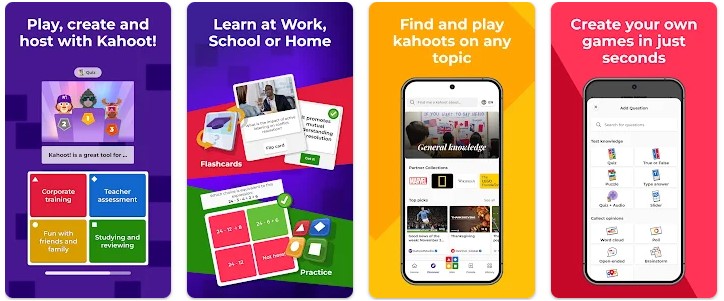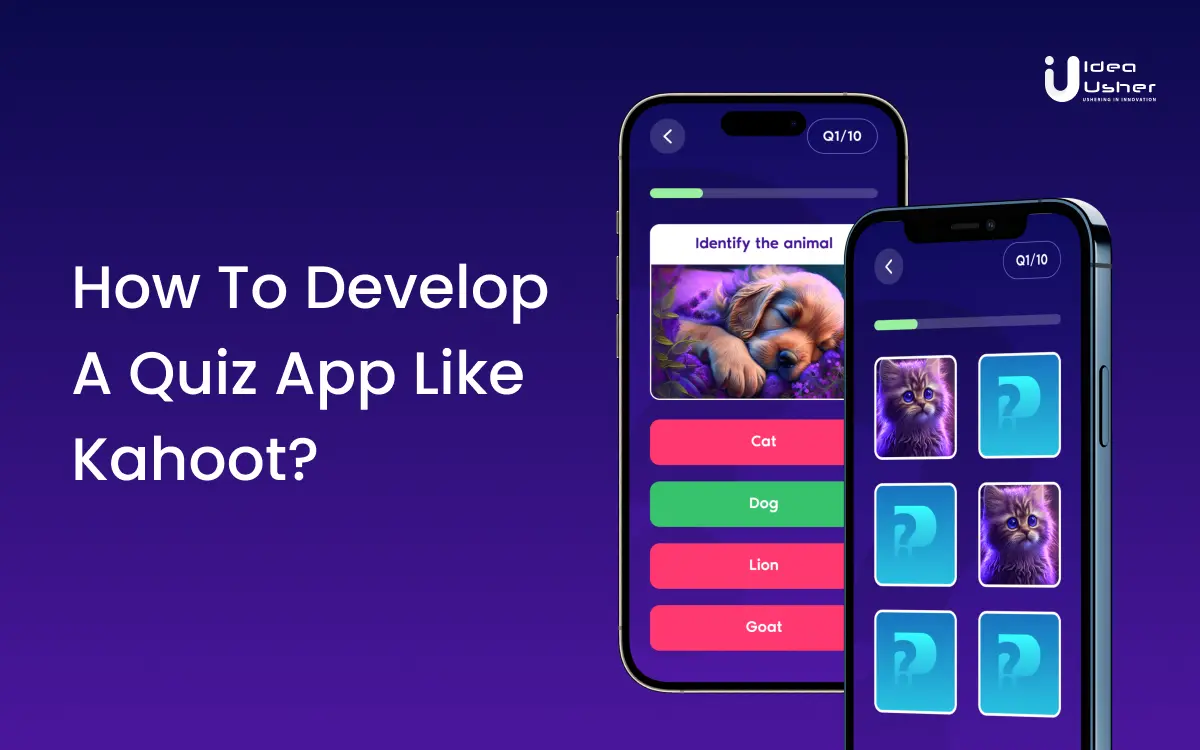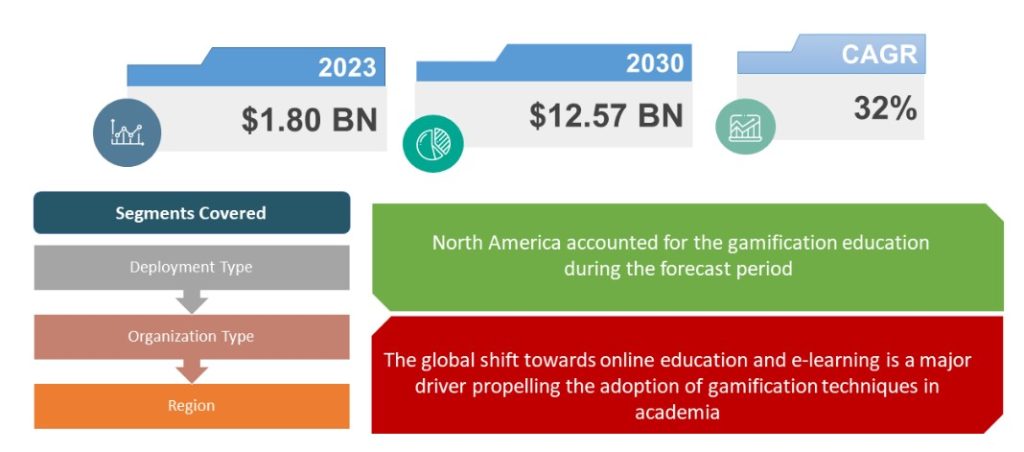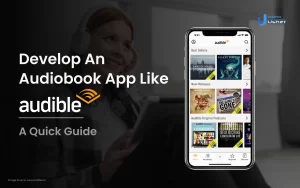Gamified learning tools are important for increasing student engagement and retention as they offer interactive experiences, immediate feedback, and personalized learning. Investing in such tools can position your business to meet the rising need for innovative educational solutions. Therefore, developing a quiz app like Kahoot can offer you a unique opportunity to enter the e-learning and gaming sectors.
Companies like Duolingo, Chegg, Slack, and IBM have successfully used such platforms to engage their audiences and promote interactive learning. This success highlights the potential of innovative educational tools that can cater to the digital age. Now, creating such a quiz app requires a combination of advanced technologies and creative design to provide a smooth, interactive user experience.
In this blog, I will help you explore the essential steps and technologies needed to develop a high-quality quiz app. We will also discuss why investing in this niche is a wise choice for businesses aiming to make an impact in the gaming and education industry.
What Is A Quiz App?
A quiz app is a software application designed to allow the creation, sharing, and playing of quizzes on digital devices. These apps serve various purposes, from educational tools to entertainment platforms, and are popular in both classroom settings and casual use. Here are some key aspects of a quiz app:
- Users can create custom quizzes by inputting questions and answer choices. These can be multiple-choice, true/false, or open-ended questions.
- Participants can join quizzes, select answers, and receive immediate feedback. The interactive nature keeps users engaged.
- Quiz apps typically provide instant scoring and feedback, which helps users understand their performance and identify areas for improvement.
- Many quiz apps allow the inclusion of media files like images, videos, and audio clips to make quizzes more engaging and informative.
- For educational purposes, quiz apps often offer analytics and reporting features that give insights into participants’ performance and progress.
Uses And Benefits Of Quiz Apps
- Quiz apps are extensively used in educational environments to assess student knowledge, reinforce learning, and make the learning process more interactive.
- Businesses and organizations use quiz apps for employee training and development to ensure that staff understand key concepts and procedures.
- Quiz apps also serve as a form of entertainment, offering trivia games and competitive quizzes that can be played solo or with friends.
- Companies may use quiz apps to gather data and insights from consumers through interactive surveys and questionnaires.
Market Trend Of Gamification In Education Apps
The global gamification education market is forecasted to increase from USD 1.14 billion in 2024 to USD 5.4 billion by 2029, with an annual growth rate of 36.4% over this period.
Another report suggests that the Gamification Education Market, valued at USD 1.80 billion, is anticipated to expand to USD 12.57 billion by 2030. Between 2024 and 2030, the market is expected to grow at an annual rate of 32%.
According to Future Market Insights, gamification in the education sector will achieve a growth rate of over 30% annually, reaching USD 2 billion by 2031. This technology is gaining popularity in educational settings for several reasons. It makes challenging subjects more enjoyable, which boosts student motivation and enhances their engagement with the material.
Moreover, another report indicates that the total revenue in the education market will experience an annual growth rate of 10.49%, leading to a projected market volume of USD 10.71 billion by 2027.
We see this as a prime moment for business owners and entrepreneurs to capitalize on the thriving gaming industry. Investing in the development of a trivia app can tap into the growing demand for interactive, engaging mobile games. With our expertise in app development, we can help you create an amazing trivia app that not only captures user interest but also drives substantial revenue growth.
– Team Idea Usher
Work with Ex-MAANG developers to build next-gen apps schedule your consultation now
What Is A Kahoot App?

Kahoot is a widely recognized cloud-based quiz platform designed to make learning more engaging through gamification. Its primary goal is to enhance the educational experience for students and teachers alike. Kahoot offers a unique way to conduct quizzes, discussions, and surveys and makes learning interactive, fun, and more effective.
One of Kahoot’s standout features is its versatility and accessibility. It functions seamlessly across a variety of devices, including older-generation tablets, computers, and smartphones. This compatibility ensures that educational institutions can integrate Kahoot into their existing technological infrastructure without the need for significant upgrades.
Kahoot utilizes the principles of gamification to drive user engagement. They upgrade traditional quizzes into interactive games to grab students’ attention and encourage active participation. The design of the platform allows for real-time interaction, where students can answer questions and receive immediate feedback. This instant gratification helps reinforce learning and keeps students motivated.
Benefits For Teachers
- Kahoot provides a powerful tool for teachers to improve their teaching strategies.
- Teachers can create custom quizzes according to their curriculum for effective assessment of student understanding.
- Kahoot offers valuable insights into student performance through its analytics feature.
- These analytics help educators identify areas where students may need additional support.
- It facilitates targeted teaching strategies and improves overall educational outcomes.
Benefits For Students
- Kahoot’s interactive format keeps students interested and engaged in learning.
- The competitive element of quizzes encourages students to perform better and makes learning fun and enjoyable.
- It allows students to work together in teams to answer questions.
- It promotes a sense of community and teamwork among students.
As an app development company, we recognize the innovative approach Kahoot takes in the education sector. The platform’s success lies in its user-friendly interface, backend infrastructure, and cross-device functionality. These elements are crucial in developing any successful educational application. Here are our five key takeaways from Kahoot:
- Kahoot’s interface is intuitive, which makes it convenient for both teachers and students to use the platform. This simplicity in design is a key factor in its widespread adoption.
- The platform efficiently handles a large number of simultaneous users and ensures a smooth experience even during peak usage times. This scalability is essential for educational apps serving large institutions or multiple classrooms.
- Incorporating gamification elements can significantly enhance user engagement. Kahoot’s success demonstrates the effectiveness of this strategy in educational apps.
- Providing detailed analytics can help educators plan their teaching methods. This feature not only adds value to the users but also sets the app apart in a competitive market.
- Ensuring the app compatibility across various devices broadens its user base and accessibility, which is a crucial consideration for educational tools.
How Does A Quiz App Like Kahoot Work?
A quiz app like Kahoot transforms learning into an interactive and engaging experience. Here’s how it works:
1. Creating A Quiz
Users can easily create quizzes by choosing from multiple-choice, true/false, and short-answer questions. To make the quizzes more engaging, they can also add videos, images, and diagrams.
2. Playing The Quiz
Players join the quiz using a unique game PIN on their own devices while the questions are shown on a shared screen. This setup encourages group participation and competition. Quizzes can also be played individually at any time, which is great for remote learning.
3. Sharing And Collaborating
After creating a quiz, it can be shared with others through links or social media. If you have a premium plan, you can collaborate with colleagues to create quizzes together, which is particularly useful for teachers and corporate trainers.
4. Analyzing Results
The app tracks how players respond to each question and how quickly they answer. This data is then used to provide detailed analytics, helping educators and trainers understand performance and identify areas for improvement.
Technical Features Of Kahoot App
- Quiz apps like Kahoot use backend frameworks such as Node.js or Django to manage data storage and real-time interactions.
- The frontend of the app is developed using technologies like React or Angular.
- Kahoot is designed to work across various devices, including smartphones, tablets, and computers.
- Real-time data synchronization in Kahoot is achieved through WebSockets.
What Is The Kahoot Business And Revenue Model?
Understanding Kahoot’s business and revenue model offers valuable insights into developing a similar app. Here’s a concise overview:
1. Freemium Subscription Model
Kahoot operates on a freemium model. It offers basic functionalities for free and premium packages with advanced features. These premium packages cater to specific user needs, enhancing the user experience for educators, students, and businesses.
2. Advertising Revenue
For free users, Kahoot generates revenue through advertisements. These ads are non-intrusive and ensure they don’t disrupt the user experience while providing a steady income stream.
3. Merchandise Sales
Kahoot sells branded merchandise, including apparel and educational materials, which contributes to its revenue and strengthens brand loyalty.
4. Licensing Content
Kahoot licenses its engaging game-based content to other companies. This strategy expands its reach and generates additional revenue by integrating Kahoot’s tools into other platforms.
5. Expanded Product Offerings
Kahoot has diversified its offerings with products like:
- Digital whiteboard that enhances interactive learning.
- Online academy, which is a resource hub for content and tips.
- Motimate that is a corporate learning platform.
These products cater to various educational and corporate needs, broadening Kahoot’s market presence.
6. Scalable Technology Platform
Kahoot’s success is supported by a scalable technology platform. It uses Node.js and Django as backend frameworks for data management and real-time interactions, as well as frontend technologies like React for a responsive interface. Moreover, it allows real-time data synchronization through WebSockets and enhances interactive gameplay.
In a nutshell, we can say that Kahoot’s business model demonstrates a balanced approach to monetizing an app through diverse revenue streams and product offerings.
Furthermore, in the first quarter of 2023, Kahoot revealed revenue of $40.5 million, marking an impressive 18% year-over-year growth. The total number of paid subscriptions also saw a substantial increase, reaching 1,345,000 across all services, reflecting a 15% year-over-year surge. These figures underscore the efficacy of Kahoot’s business approach.
Why Do Kids Embrace Learning Apps Like Kahoot?
Educational apps like Kahoot have captured the hearts of children worldwide. Here are several compelling reasons why children gravitate toward Kahoot:
- Kahoot transforms education into an enjoyable game that captivates children’s interest and encourages active participation.
- With its intuitive design, Kahoot offers easy access to quizzes and challenges from any device and simplifies the learning process for children of all ages.
- Kahoot provides instant feedback on responses and allows children to learn and improve in real time.
- Kahoot promotes friendly competition among students and motivates them to excel while enjoying the interactive learning experience.
- Covering a wide range of topics, Kahoot caters to various interests while ensuring every child finds something engaging to learn.
- Kahoot promotes interaction among peers during quizzes, enhancing collaboration and communication skills in a supportive environment.
- Last but not least, Kahoot allows children to apply their knowledge to real-life situations and builds deeper understanding and skill development.
This highlights why an app like Kahoot is not only a good idea but also has significant potential to be well-received by your target audience.
Why Education Apps Like Kahoot Are Growing In Demand?
Education apps like Kahoot are experiencing a surge in demand due to several factors:
1. Engaging Learning Experiences
Educational apps such as Kahoot make learning fun and interactive by incorporating game-like elements. Through quizzes, challenges, and rewards, students actively participate in their learning process, making it more enjoyable and effective.
2. Skill Development
These apps go beyond traditional learning methods and help students develop crucial skills like problem-solving and critical thinking. By engaging with interactive content, learners enhance their abilities in practical ways.
3. Enhanced Student Engagement
Kahoot and similar apps keep students engaged through competition and interactive features. This active participation ensures that learners remain focused and motivated, which leads to better retention of information.
4. Improved Content Retention
The interactive nature of educational apps aids in better retention of learned material. When students enjoy what they’re doing, they remember more, which leads to deeper understanding and better academic performance.
5. Progress Monitoring And Analytics
Educators benefit from features like progress tracking and analytics, which provide insights into student performance. This data-driven approach allows for personalized learning experiences and targeted support where needed.
6. Promotion Of Collaboration
Educational apps promote collaboration among students, encouraging teamwork and peer-to-peer learning. By working together towards common goals, learners develop essential communication and social skills.
7. Efficient Communication Channels
Platforms like Kahoot serve as effective communication channels between educational institutions, students, and parents. They streamline the sharing of information, such as schedules and assignments, and ensure everyone stays informed and connected.
8. Flexible Learning Opportunities
One of the key advantages of educational apps is the flexibility they offer. Students can access learning materials anytime, anywhere, catering to individual learning styles and accommodating busy schedules.
Key Features Of Kahoot That Makes It Unique
Here are some of the key features that define these gamified learning platforms:
1. Interactive Quizzes
Kahoot includes a wide range of interactive quizzes. These quizzes can feature multiple-choice questions, true or false statements, fill-in-the-blank prompts, and more. The variety of question types ensures that learners remain engaged and can effectively test their knowledge on various subjects.
2. In-Built Templates
These platforms come equipped with numerous built-in templates. These templates let users quickly and easily create quizzes on diverse topics. The availability of pre-made templates saves time and provides a foundation for creating engaging content customized to specific learning objectives.
3. Live Polls And Word Clouds
Features like live polls and word clouds are integral to these games. Live polls enable real-time feedback from participants and allow interactive discussions. Word clouds visually represent collective responses and highlight common themes and ideas, which can be particularly useful in classroom settings or group learning environments.
4. Group Conversations
Many of these games support real-time group conversations, connecting learners from around the world. This feature facilitates practical language practice and collaborative learning and allows users to engage in meaningful discussions and exchange ideas.
5. Personalized Lessons
Customizable content is a hallmark of Kahoot-like platforms. These games allow educators to customize lessons to meet the diverse learning levels and preferences of their students. This flexibility in the app ensures that each learner receives a customized educational experience that addresses their specific needs.
6. Flash Cards and Practice Quizzes
Games such as Quizlet offer features like flash cards and practice quizzes. Users can create their own quiz or select from a wide array of pre-made quizzes and templates created by other users. Flash cards are particularly effective for memorization and quick review sessions.
7. Interactive Language Games
For language learning, these platforms often include interactive games designed to reinforce language comprehension and usage. These games engage users in various activities that enhance their vocabulary, grammar, and overall language skills through fun and interactive methods.
Work with Ex-MAANG developers to build next-gen apps schedule your consultation now
How To Develop A Quiz App Like Kahoot?
Here are the technical steps involved in developing a quiz app like Kahoot:
1. Educational Content Strategy
In the initial phase, it’s crucial to define the educational objectives and content strategy for your quiz app. Determine the subjects, topics, and learning objectives you want to cover. Identify your target audience, whether it’s students, educators, or specific age groups. Decide on the types of quizzes you’ll offer and ensure they align with educational standards and curriculum requirements.
2. Feature Planning
Plan the interactive features that will make your app engaging and effective for learning. Consider elements such as points, leaderboards, badges, and rewards to gamify the experience. Decide on multiplayer options, team challenges, and user-generated content features. Ensure your app provides a comprehensive and enjoyable learning experience.
3. User Interface Design
Invest in designing an intuitive and visually appealing user interface (UI) that enhances the learning experience. Create wireframes and prototypes to visualize the app’s layout and flow. Design interfaces that are easy to navigate and understand, with vibrant colors, engaging graphics, and clear instructions. Accessibility features should also be integrated to cater to all users.
4. Frontend Development
Develop the frontend components of your quiz app using HTML5, CSS3, and JavaScript frameworks like React or Vue.js. Implement responsive design to ensure the app works across various devices and screen sizes. Incorporate animations and transitions to make the user experience lively and interactive. After this, build the quiz player interface with features like real-time feedback and progress tracking.
5. Backend Development
Set up a backend infrastructure using technologies like Node.js or Python. Develop a database schema to store quiz questions, user profiles, scores, and progress data. Implement RESTful APIs to facilitate communication between the frontend and backend components. Ensure scalability and reliability to handle user growth and data management efficiently.
6. Gamification Implementation
Once the basic frontend and backend development is done, integrate gamification elements into your app to motivate and engage users. Develop scoring systems, levels, and badges to reward progress and achievements. Implement real-time feedback mechanisms for correct and incorrect answers to enhance learning. Encourage competition and collaboration among users with features like multiplayer mode and team challenges.
7. Real-Time Functionality
Implement real-time features to enable live quizzes and interactive sessions. Utilize technologies like WebSockets for seamless communication between users and the server. Ensure synchronized updates and progress tracking during live sessions to enhance the multiplayer experience.
8. Content Management
After implementing real-time functionality, create an admin panel to manage quiz content, user accounts, and analytics. Implement content moderation features to ensure the accuracy and relevance of quizzes. Enable scheduling options for timed quizzes and events to engage users at specific times.
9. Security, Testing And Quality Assurance
During the development process, make sure to implement security measures to ensure privacy and protect user data. Utilize encryption techniques to secure sensitive information. Implement secure authentication methods and regularly update security protocols to address vulnerabilities and threats.
After this, thoroughly test all features of your app to ensure functionality and usability. Conduct unit, integration, and end-to-end testing to identify and fix any issues. Furthermore, test scalability and performance under varying load conditions to ensure the app can handle heavy traffic.
10. Deployment And Scalability
Deploy your app on reliable cloud platforms like AWS, Azure, or Google Cloud for scalability and reliability. Configure auto-scaling and load balancing to handle increased user loads. Monitor app performance and usage patterns to optimize resources and ensure a smooth user experience.
After the deployment of your app, you can now gather user feedback through surveys, reviews, and analytics to identify areas for improvement. With this, you can regularly update the app based on feedback and emerging educational trends. So, make sure to continuously iterate on features and content as required to enhance the learning experience and keep users engaged in the long term.
Work with Ex-MAANG developers to build next-gen apps schedule your consultation now
Tech Stack For Quiz Apps Like Kahoot
Here’s a table outlining the technology stack that can be used for developing a mobile quiz app:
| Layer | Technology |
| Frontend | React Native, Flutter |
| Backend | Node.js, Django, Ruby on Rails |
| Database | MongoDB, PostgreSQL |
| Real-Time Communication | WebSockets, Socket.io |
| User Authentication | Firebase Authentication, Auth0 |
| Push Notifications | Firebase Cloud Messaging (FCM), OneSignal |
| Analytics | Google Analytics, Firebase Analytics |
| Version Control | Git, GitHub, GitLab |
| Deployment | AWS, Google Cloud Platform, Microsoft Azure |
What Is The Cost Of Developing An App Like Kahoot?
The cost of developing an app like Kahoot can vary depending on various factors. Here’s a list of the main cost components:
- Basic Features: User registration, quiz creation, multiplayer, scoreboards, and basic analytics.
- Additional Features: Social media integration, in-app purchases, advanced analytics, and customization options.
- Design: UI/UX design, custom graphics, and branding.
- Development: Frontend, backend, and third-party API integration.
- Testing: Quality assurance, bug fixing, and security checks.
- Deployment: App store fees and server hosting.
- Post-launch Expenses: Ongoing maintenance, marketing, and support.
- Development Team: Rates vary based on location and expertise.
- Platform: Developing for both iOS and Android increases costs.
- Design Complexity: Custom designs and animations require more resources.
Approximate Cost Estimation
- Simple quiz app that will have basic features with limited customization and no advanced functionality: $20,000 – $50,000
- Medium complexity app that will include additional features like social integration, in-app purchases, and basic analytics: $50,000 – $100,000
- Complex app with advanced features, customizable quizzes, real-time multiplayer, advanced analytics, and integration with external systems: $100,000 – $300,000+
At this point, it’s essential to discuss your project requirements with an experienced development team to get an accurate cost estimation specific to your project requirements.
Conclusion
Developing a quiz app like Kahoot offers amazing opportunities for businesses in e-learning and gaming. These apps use advanced technologies and creative design to keep users engaged and improve learning. The market for gamified educational apps is growing, and it provides a unique chance for entrepreneurs and business owners to make an impact. Therefore, partnering with a skilled app development company can help you navigate the technical details and create a successful product. Investing in this promising niche now can lead to significant returns and a strong presence in the digital learning space.
Develop Your Kahoot-like Quiz App With Idea Usher
At Idea Usher, we specialize in developing top-notch quiz apps like Buzztime Go and Buzztime BETS, along with other gamified educational projects. Our team utilizes advanced technologies and innovative designs to ensure an engaging user experience. We offer comprehensive services, covering every stage from concept and design to development and deployment. Partnering with us allows you to capitalize on the booming market for educational tools and mobile games. We are dedicated to helping businesses grow by delivering user-friendly, interactive apps that boost engagement and retention. Let Idea Usher support your journey to make a substantial impact in the digital learning and education industries. Contact us now!
Work with Ex-MAANG developers to build next-gen apps schedule your consultation now
FAQ
How Do You Make A Kahoot App?
To create an app like Kahoot, start by outlining the core features, including user authentication, quiz creation, real-time gameplay, and data analytics. Develop the backend using a framework such as Node.js or Django to handle server-side logic and database interactions. For the frontend, use a framework like React or Angular to build an interactive user interface. Implement real-time communication using WebSockets to ensure smooth, live interactions during quizzes. Finally, choose a scalable cloud platform like AWS or Google Cloud to host your application, ensuring it can handle multiple users simultaneously.
What Software Does Kahoot Use?
Kahoot utilizes a combination of technologies, including Amazon Web Services (AWS), for cloud hosting and scalability. The backend is likely built with Node.js for handling server-side logic, while the frontend uses modern web technologies such as React for an interactive user experience. Real-time features are managed using WebSockets.
How To Make An App Like Kahoot?
Creating an app like Kahoot involves several key steps. Begin by defining essential features such as user registration, quiz creation, real-time gameplay, and performance analytics. Use a backend technology like Node.js or Django to handle server-side operations and database management. For the frontend, opt for React or Angular to create an engaging and user-friendly interface. Implement WebSockets for real-time communication to facilitate live interactions during quizzes. Finally, deploy your app on a cloud platform like AWS or Google Cloud for scalability and reliability, ensuring it can support a large user base.
How To Create A Quiz In The Kahoot App?
To create a quiz in the Kahoot app, log in to your account and select the “Create” button. Choose the type of quiz, add questions, and provide answer options. Customize the quiz with images or videos if desired. Save the quiz and share the game PIN with participants to start the game.
What Is A Kahoot Quiz App?
Kahoot is a cloud-based quiz app designed to make learning fun and interactive through gamification. It allows users to create, share, and play quizzes in a real-time format. The app supports various devices and is widely used in educational settings to enhance student engagement and assess understanding effectively.

























